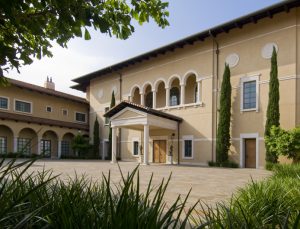Our Globalizing the Liberal Arts conference will bring together leaders from leading liberal arts colleges and programs to engage in a summit meeting that will discuss ways in which liberal arts can provide undergraduates with the capability to collaborate on complex problems that span diverse cultural perspectives. The leaders gathered at our meeting will articulate the vision of liberal arts and its role in fostering global citizenship, and how liberal arts can respond to the demands of our societies for solutions to urgent social, political and scientific problems.
Some of the themes our meeting will address – in a mix of keynote presentations, panel discussions and working groups – includes:.
-
The Role of the Core and GE Curriculum in Global Liberal Arts
Several colleges provide extensive Core and General Education Curricula for all of their undergraduates, and in many cases these courses enable students to develop deep intercultural understanding and explore the works and perspectives of civilizations from Europe Asia and other countries. How do these core curricula work and what are their main benefits and challenges? A group of institutions will present the key features of their Core and GE curricula and discuss some of the ways they operate in a globalized liberal arts education.
-
Centers for Global Learning
This group will describe several models of a Global Learning Center–some well-established and some just starting, and share the experiences of building centers, and how these centers can help build toward a more global liberal arts experience on a liberal arts campus.
-
study abroad in a connected world
The era of digital communications technologies has radically changed the experience of study abroad, and poses new challenges for educators. Whereas students commonly use their electronic devices to take refuge in the deracinated internet environment, our challenge is to harness these devices as a tool for helping them maximize their intercultural learning abroad. Technology now allows us to access the world beyond our borders in the classroom, and we can replicate intercultural encounters that were previously only experienced abroad. As we reevaluate the concepts of “intercultural” and “abroad” we must also consider what new pedagogies will best prepare our students to succeed in an increasingly interconnected world, at home and while abroad.
-
The Global Liberal Arts College
In recent years, many liberal arts colleges have begun to promote themselves as incubators of “global citizenship.” In spite of these claims, however, it is unclear what precisely defines a college as global. The purpose of this roundtable discussion is to work toward a definition of the “global” in the liberal arts by looking at different versions of global programs from leading liberal arts colleges.
-
Capturing the Global Experience
The activities collected under the rubric of “global experience” tend to be multiple and far-flung—often including off campus study, select courses, internships, civic engagement, language study, participation in events, and more. How can we curate these experiences in a way that renders them more coherent and meaningful for our students while at the same time translatingthem into a more broadly understood academic currency? This session will focus on three related topics: 1) courses that encourage student reflection; 2) eportfolios and other techniques for assembling and assessing disparate experiences; 3) transcript notations as a way to recognize and represent a body of work.
-
-
Globalized STEM Education
How can we bring our STEM faculty and students into deeper engagement with globalized issues in science and technology? What kinds of tie-ins can study abroad have with STEM to make for more meaningful engagement within the international experience? And what are some of the emerging new curricula in science within liberal arts institutions? This panel will discuss the state of STEM education within liberal arts in a global context.
-
Our meeting will include Directors for Global Education and Deans from a Mellon Foundation Global Liberal Arts consortium that includes Carleton, Connecticut College, Colorado College, Grinnell, Hamilton, Lafayette, Mount Holyoke, Middlebury, Saint Lawrence, Trinity College, Union, Wesleyan, and Williams. With strong regional connections to the Claremont Colleges, as well as nearby peer institutions, we will be able to offer presentations and share perspectives on global liberal arts from leading institutions across Southern California. Yale University and Yale-NUS College (Singapore) have agreed to participate, and both will be sending teams of faculty to represent their new projects in undergraduate education and liberal arts. Yale and Yale-NUS jointly organized a conference in 2016 entitled “Globalizing the Liberal Arts (https://gla.yale-nus.edu.sg/) and many of participants from that meeting would be invited and expected to attend.
An additional opportunity exists to connect to excellent liberal arts programs internationally and we will be including several representatives of leading international institutions from around the world, including Singapore, Japan, India, the Netherlands, Switzerland, Kenya, China, and Malaysia. The presence of representatives from a wide range of international liberal arts colleges and programs will provide a truly global perspective.

